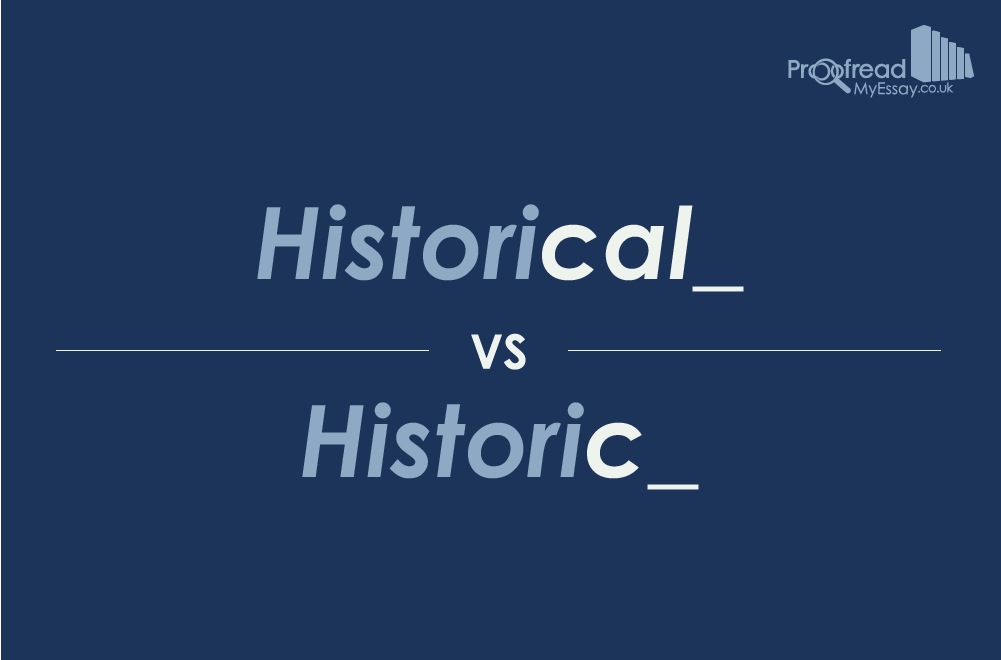We all know that ‘history’ is ‘the past’, particularly as an academic subject (e.g. ‘I study history’) or when we’re referring to the past in its entirety (e.g. ‘we’re history’s greatest proofreaders’).
But the words ‘historic’ and ‘historical’ are a bit more confusing. A lot more, in fact, since both are variations of ‘history’, which has led to their regularly being used interchangeably.
Nevertheless, when we look at their definitions, we see that ‘historic’ and ‘historical’ each have specific meanings, making it important not to confuse them in academic work.
Historical (Related to History)
The broader of the two terms is ‘historical’, which simply means ‘of or relating to history’. This can either be because something is from the past:
Historical records show that the Industrial Revolution had a major impact on urbanisation.
Or because it refers to or imitates the past:
Accurate costumes are vital to historical re-enactments.
As such, we can use ‘historical’ whenever we refer to something from the past or related to history.
Historic (Of Importance to History)
‘Historic’ has a more specific meaning, since it refers to things that are of special importance or significance to history. This can be something influential from the past:
Find this useful?
Subscribe to our newsletter and get writing tips from our editors straight to your inbox.
The signing of the Magna Carta was a historic moment in British politics.
Or it can refer to something in the present that stands out in history:
With Michael Phelps’ historic victory in the pool, he became the most decorated Olympian ever.
The key here is that ‘historic’ only applies in very noteworthy situations, not any time we refer to something from history.
Historical or Historic?
Since these words are similar and can apply to the same thing, it’s not a surprise that people mix them up: the signing of the Magna Carta, for example, was both ‘historical’ (i.e. it happened in the past) and ‘historic’ (i.e. it was of great importance to history).
This is made more confusing by the way both word’s endings, ‘-ic’ and ‘-ical’, can mean ‘related to’, sometimes even modifying the same word (e.g. ‘ironic’ and ‘ironical’ mean the same).
However, it can help to focus on how the ‘-ic’ at the end of ‘historic’ is the same as at the end of ‘specific’, since ‘historic’ has a more specific meaning than ‘historical’:
- If you’re referring to something from the past in general, the correct term will be ‘historical’.
- If you’re discussing something with particular significance in history, you’ll need to use the more specific term ‘historic’.
